PENGUINS
December 2024
Although they are a southern hemisphere animal, that did not stop me from creating the penguins for my December holiday themed collection. Some Penguins are glazed colorfully while others are surrounded by snowy atmospheres, adorned with snowflake appliques. These penguin mugs were my first mugs with both babies and parents depicted. Along with the penguins I created 9 reindeer mugs, and a bunch of Yule inspired mugs. You can see those works under the gallery Yule.
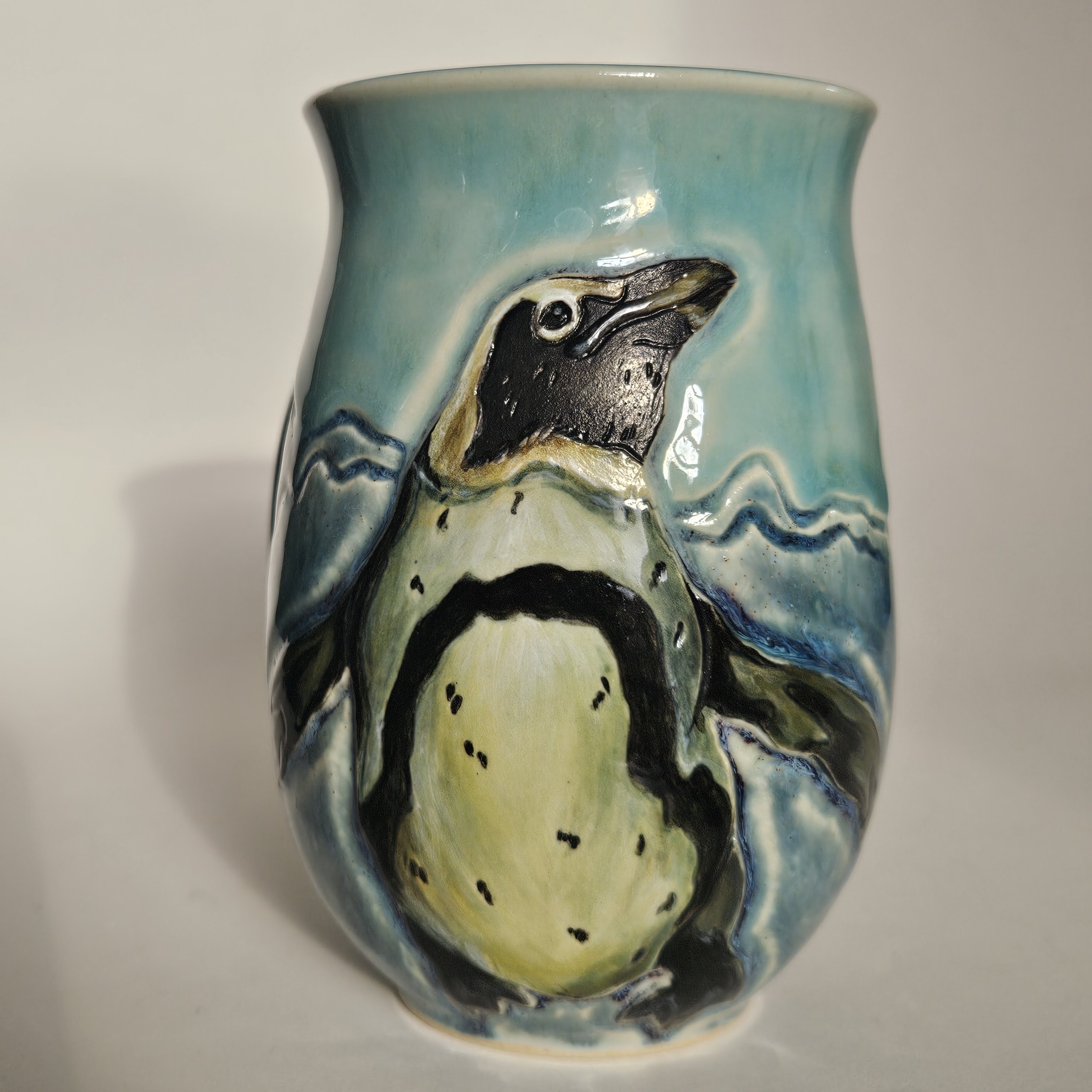
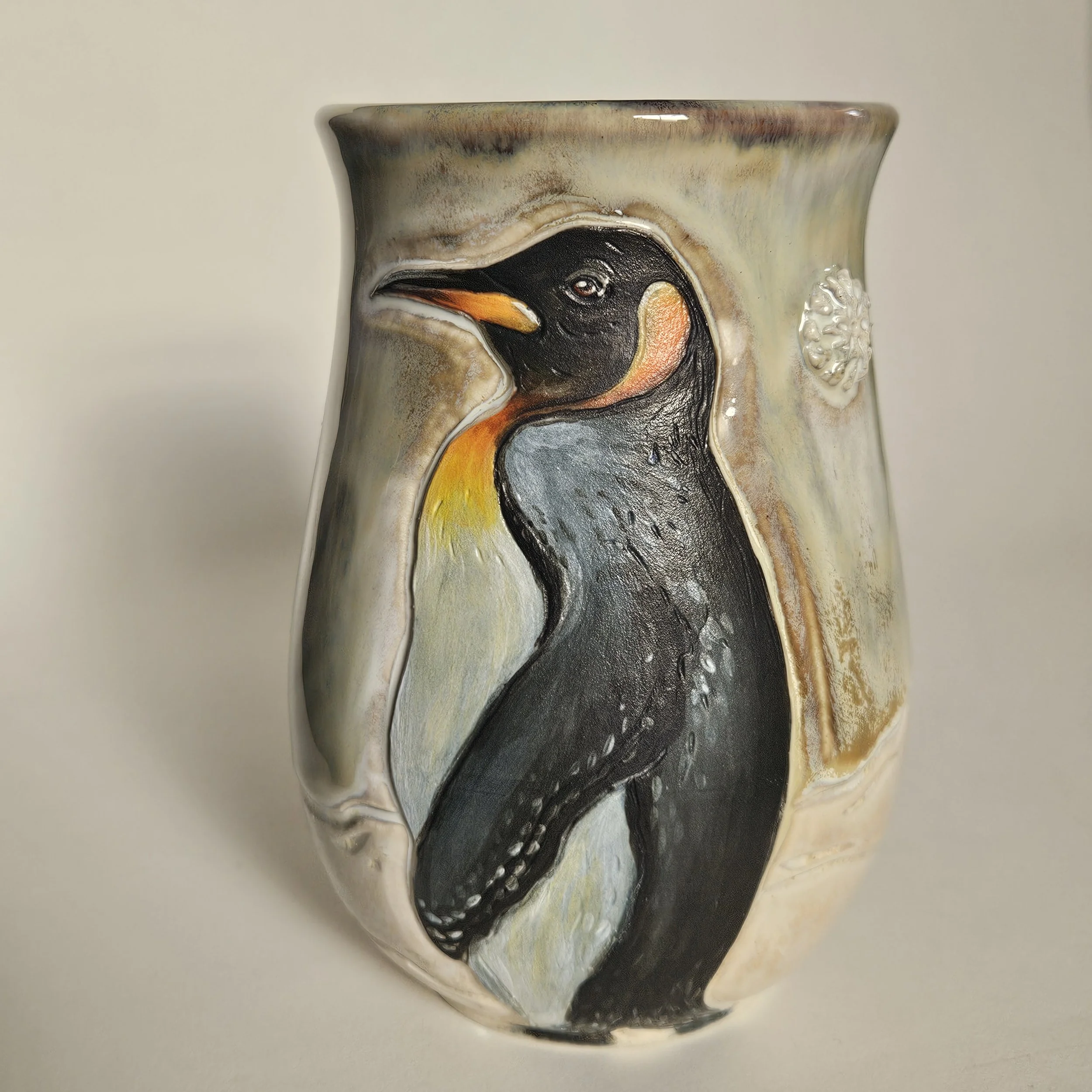
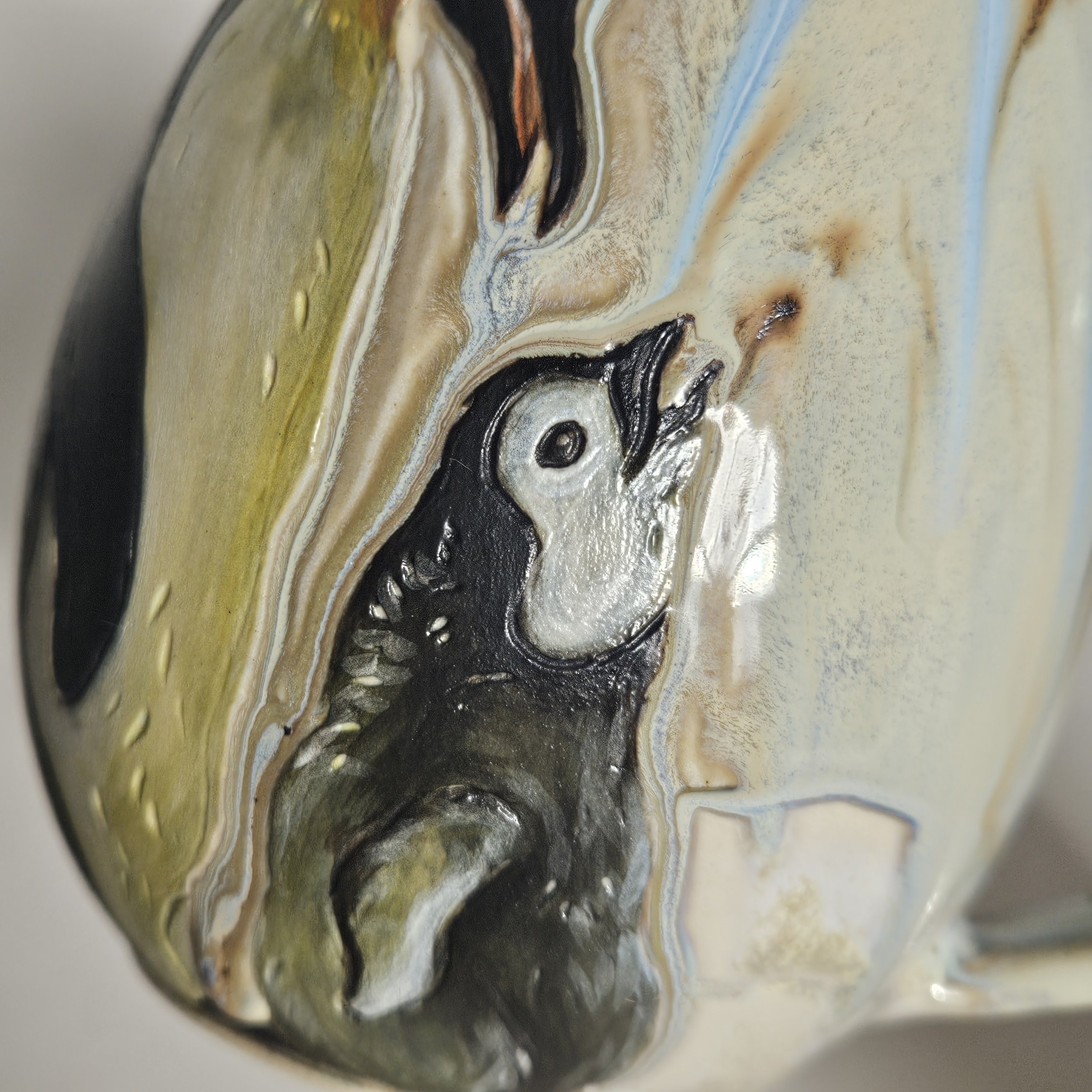
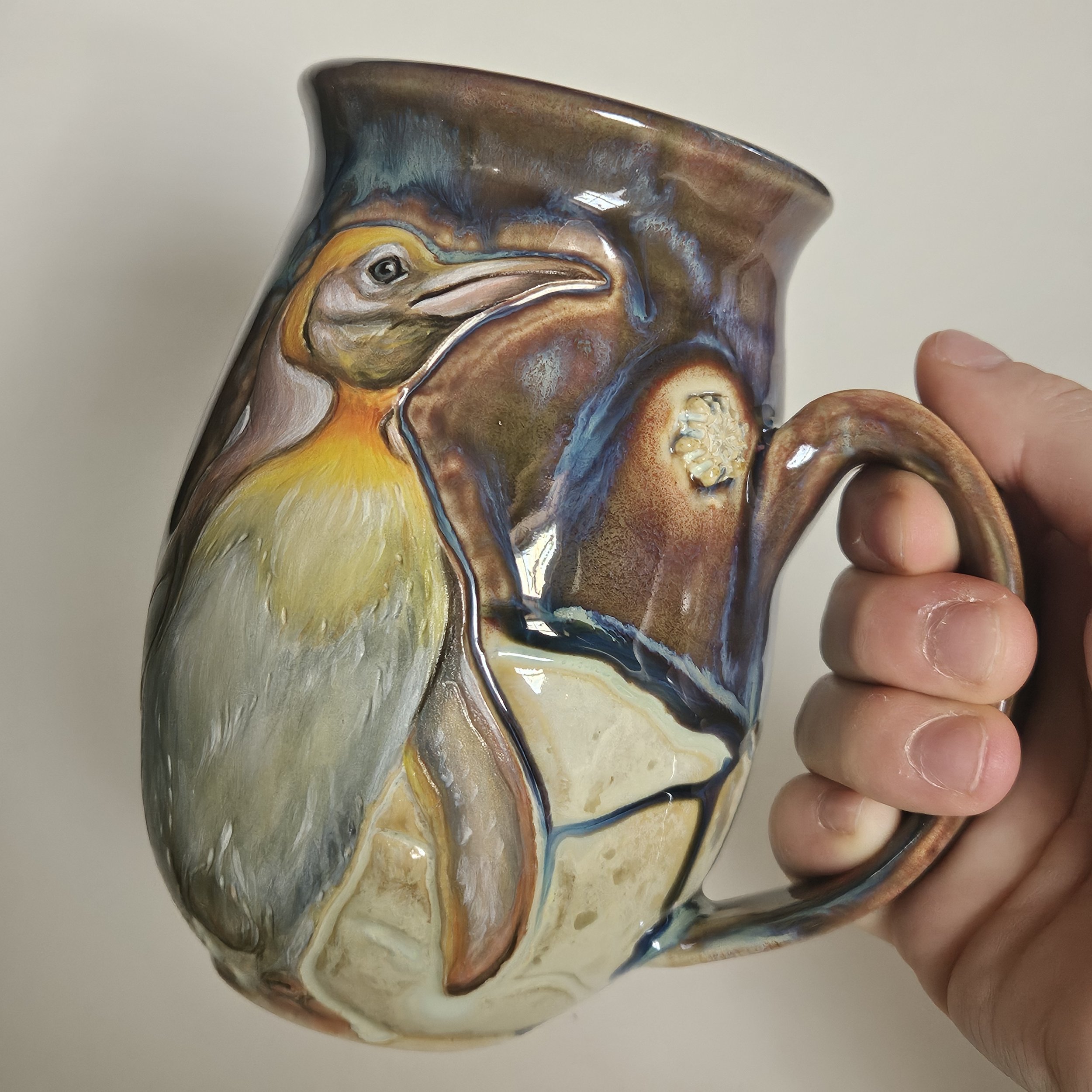
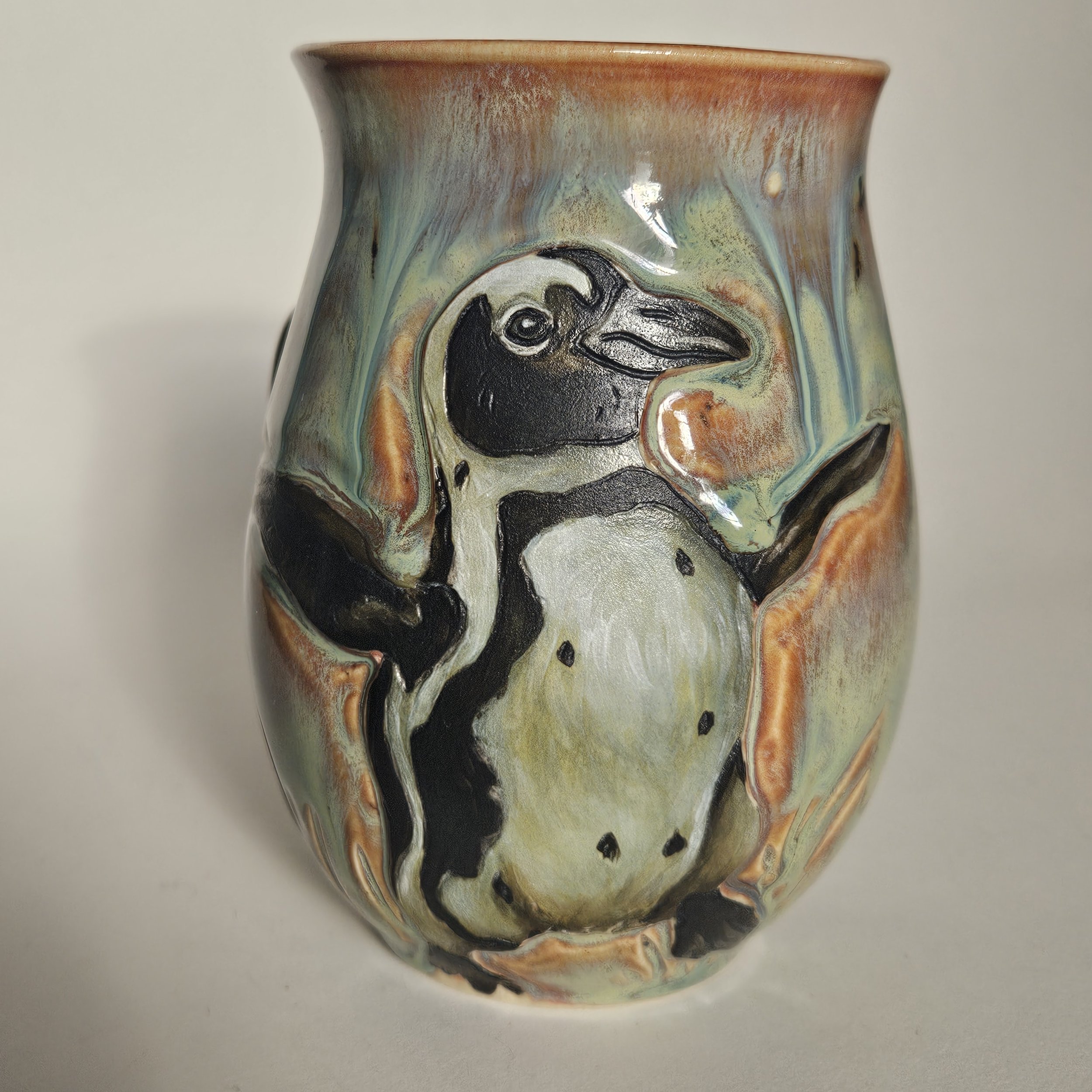
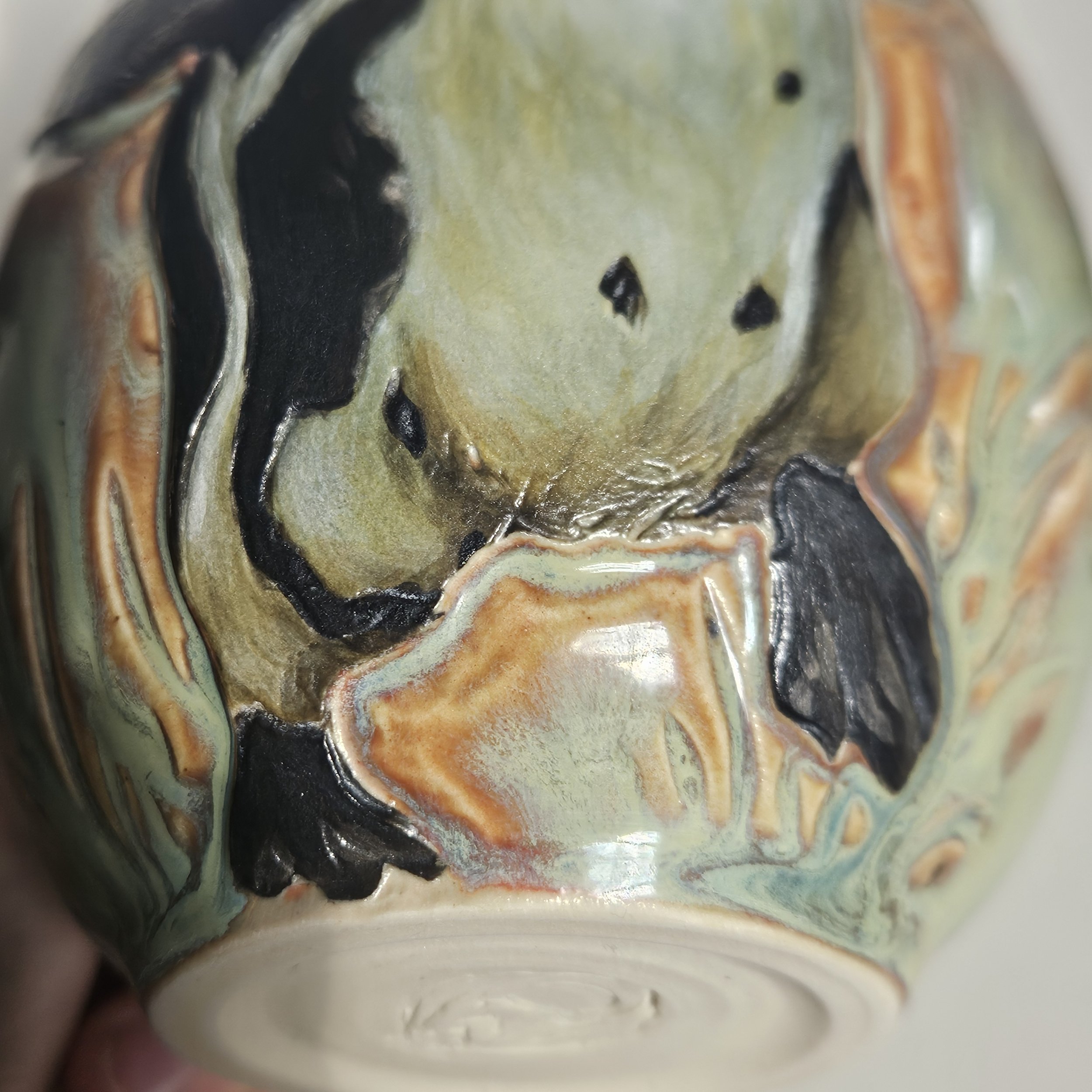
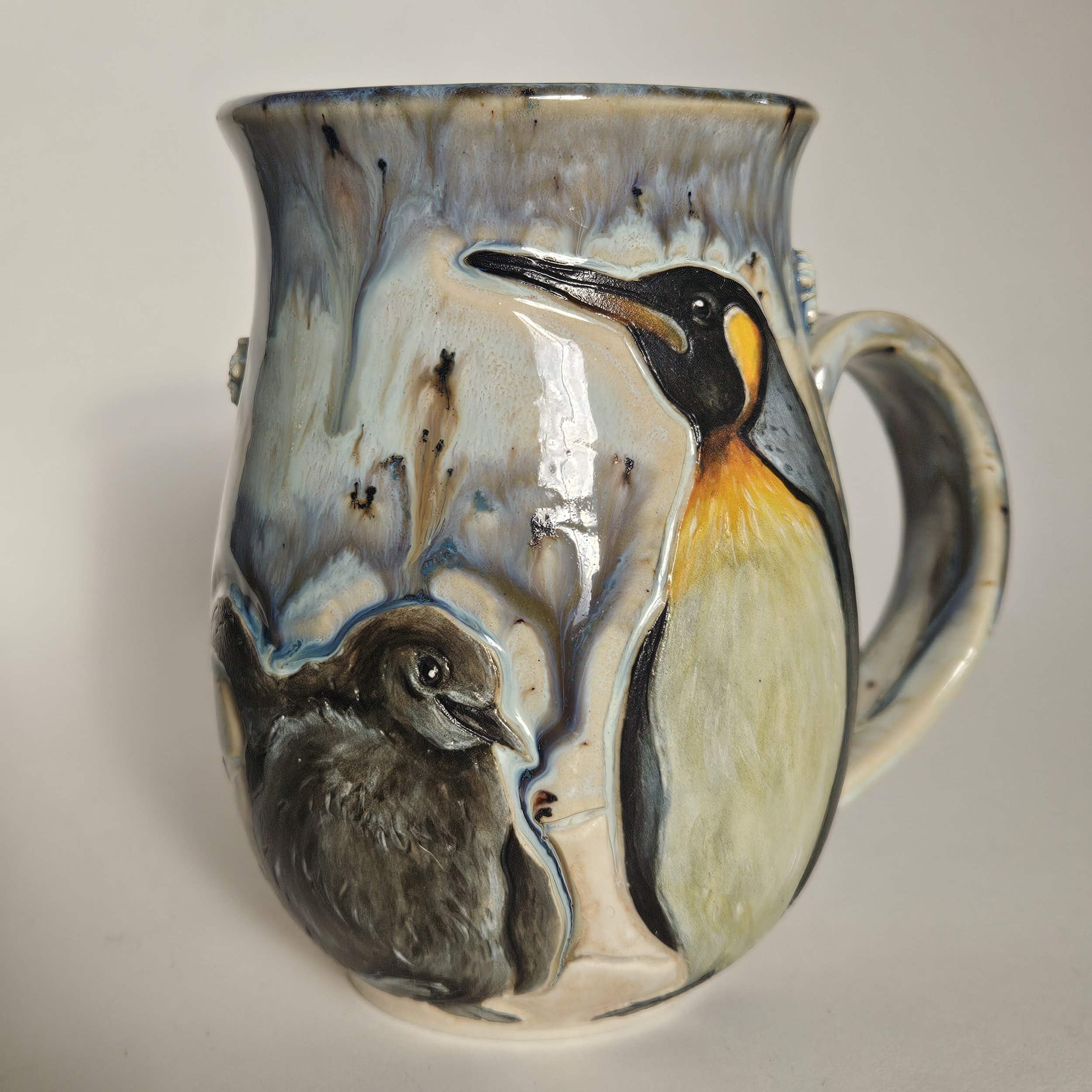
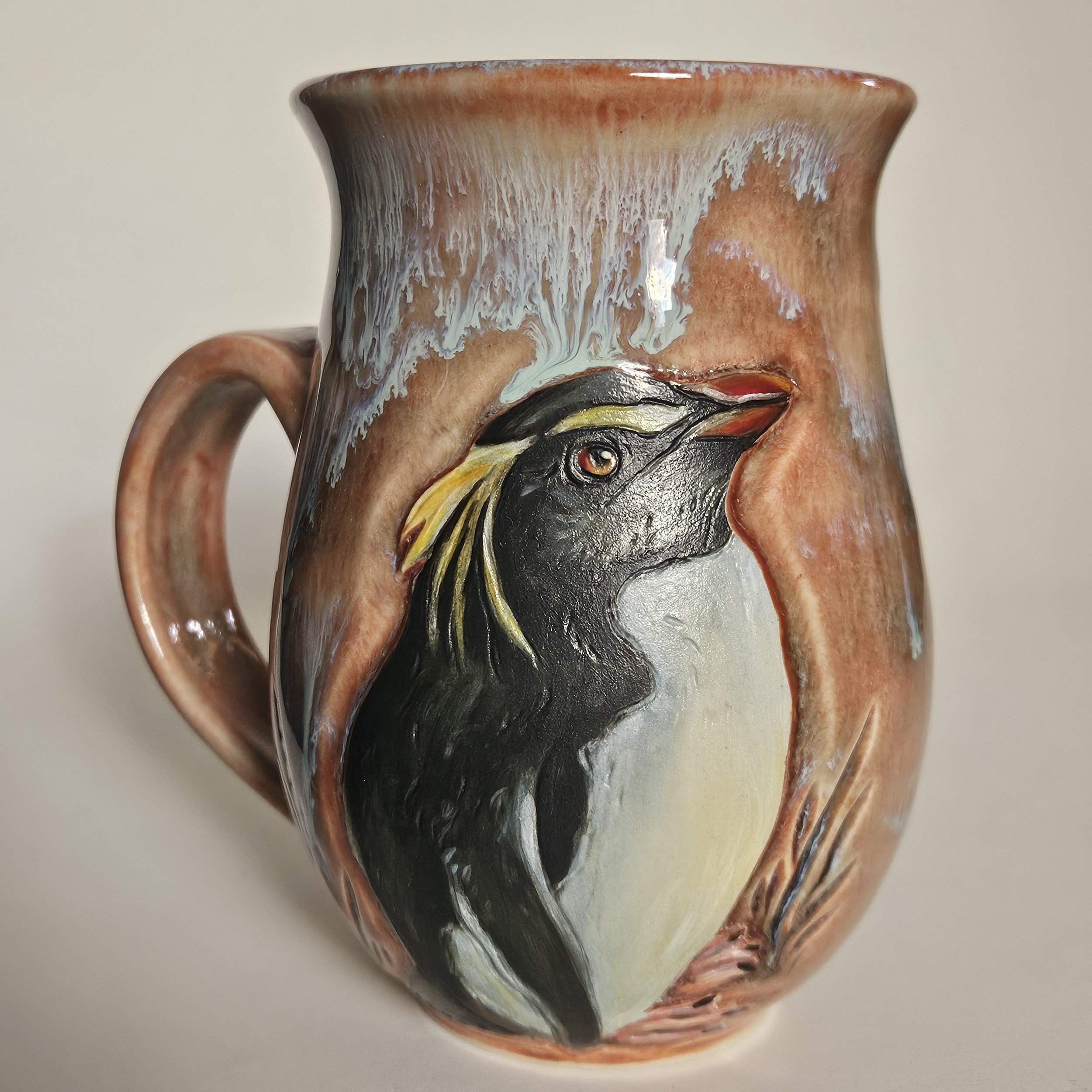
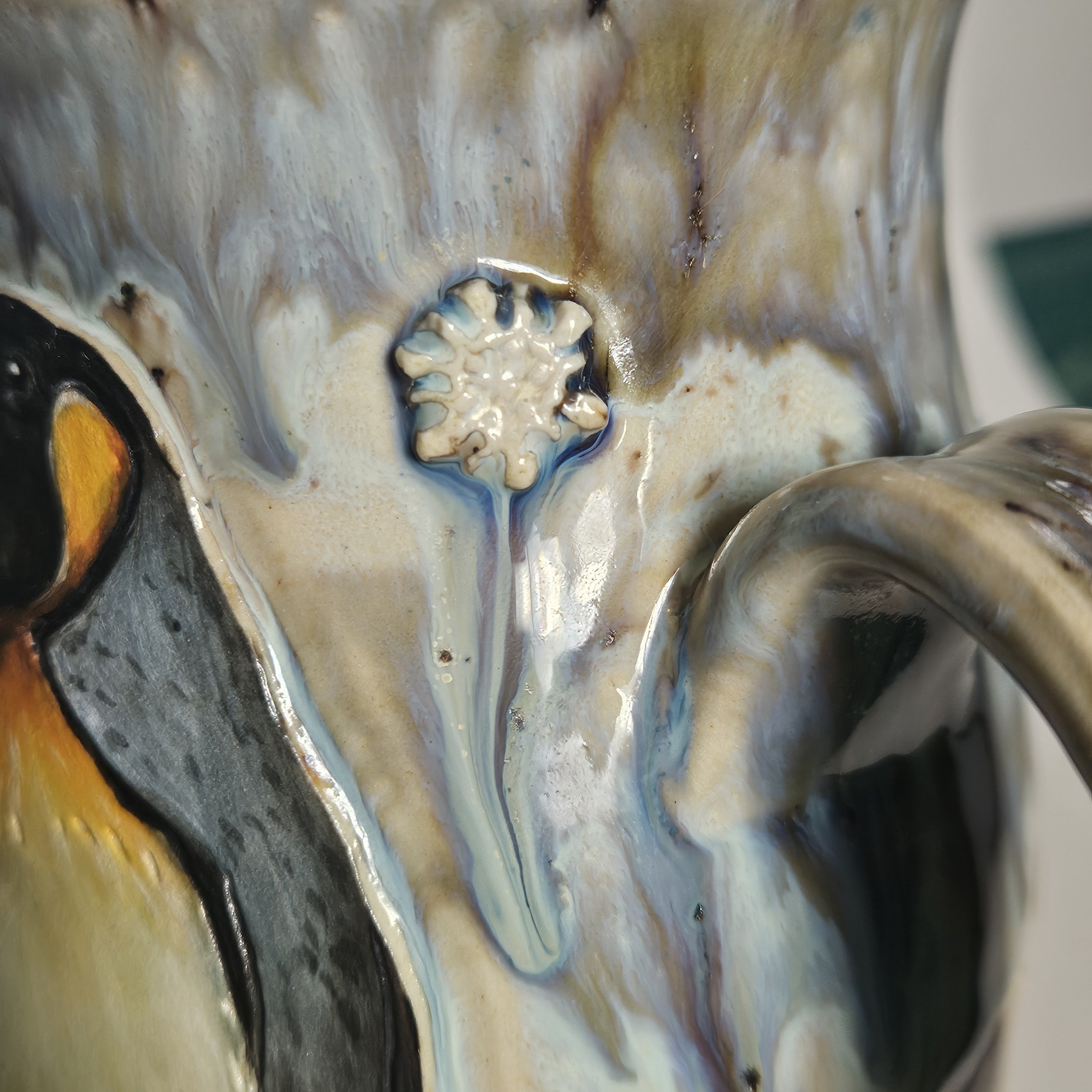
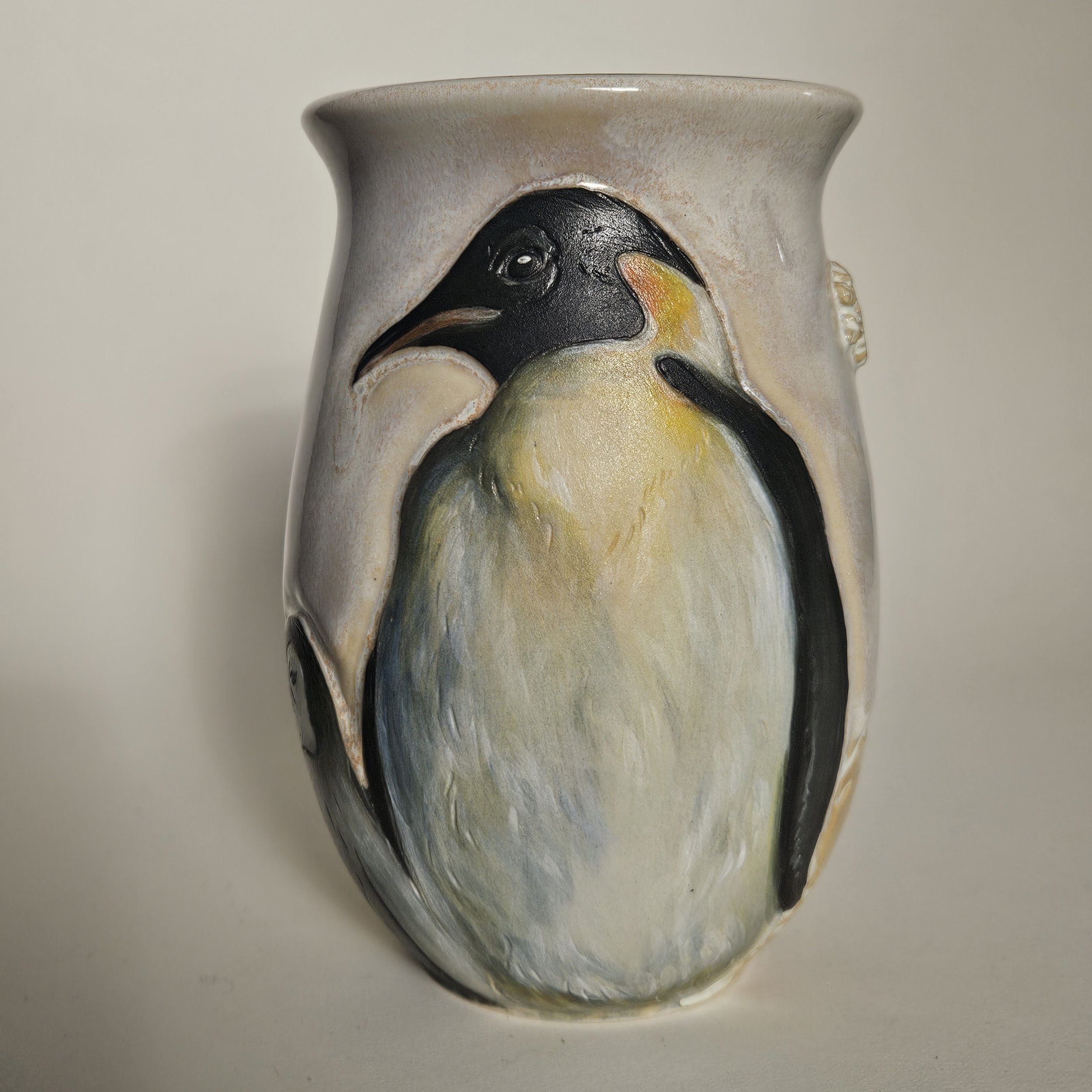
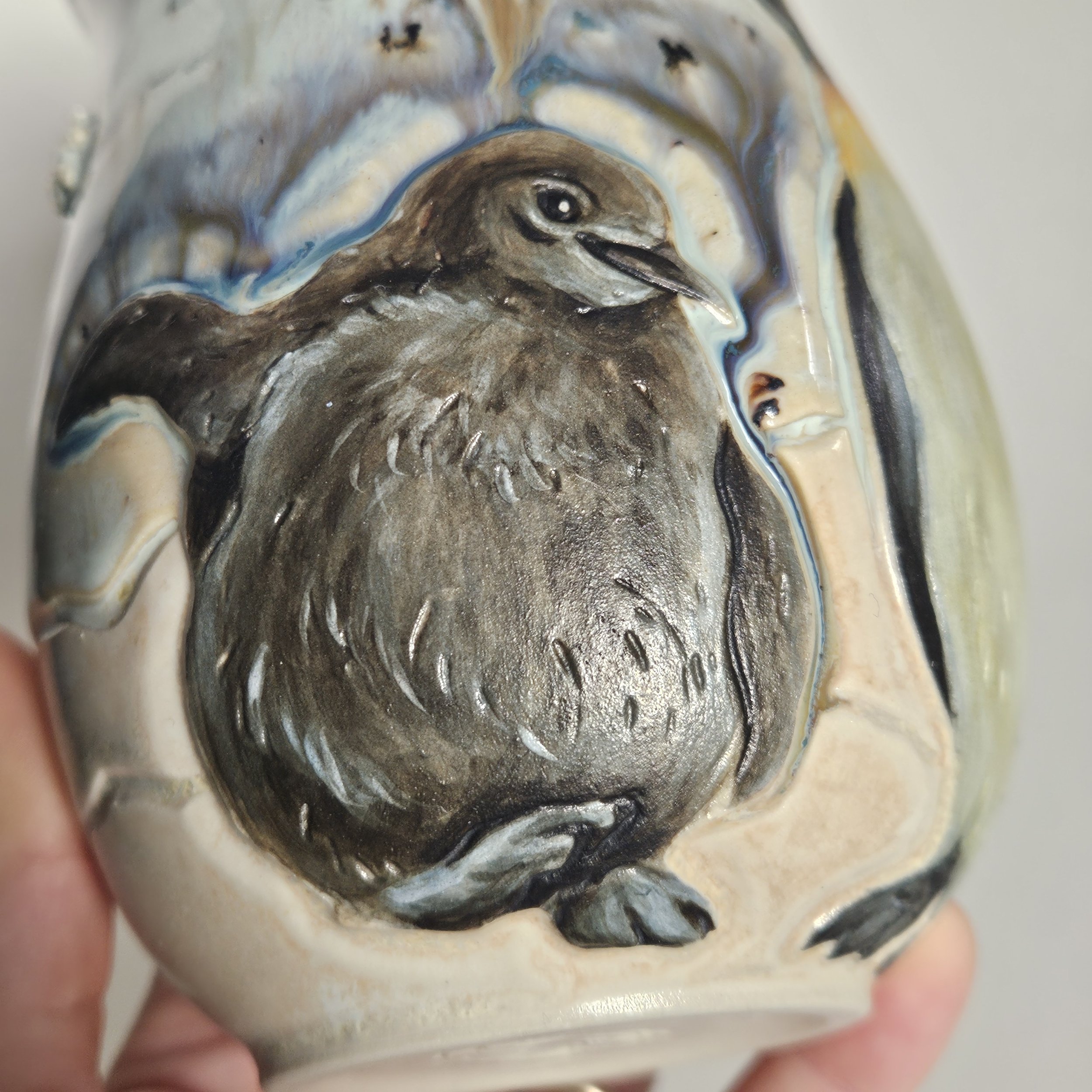
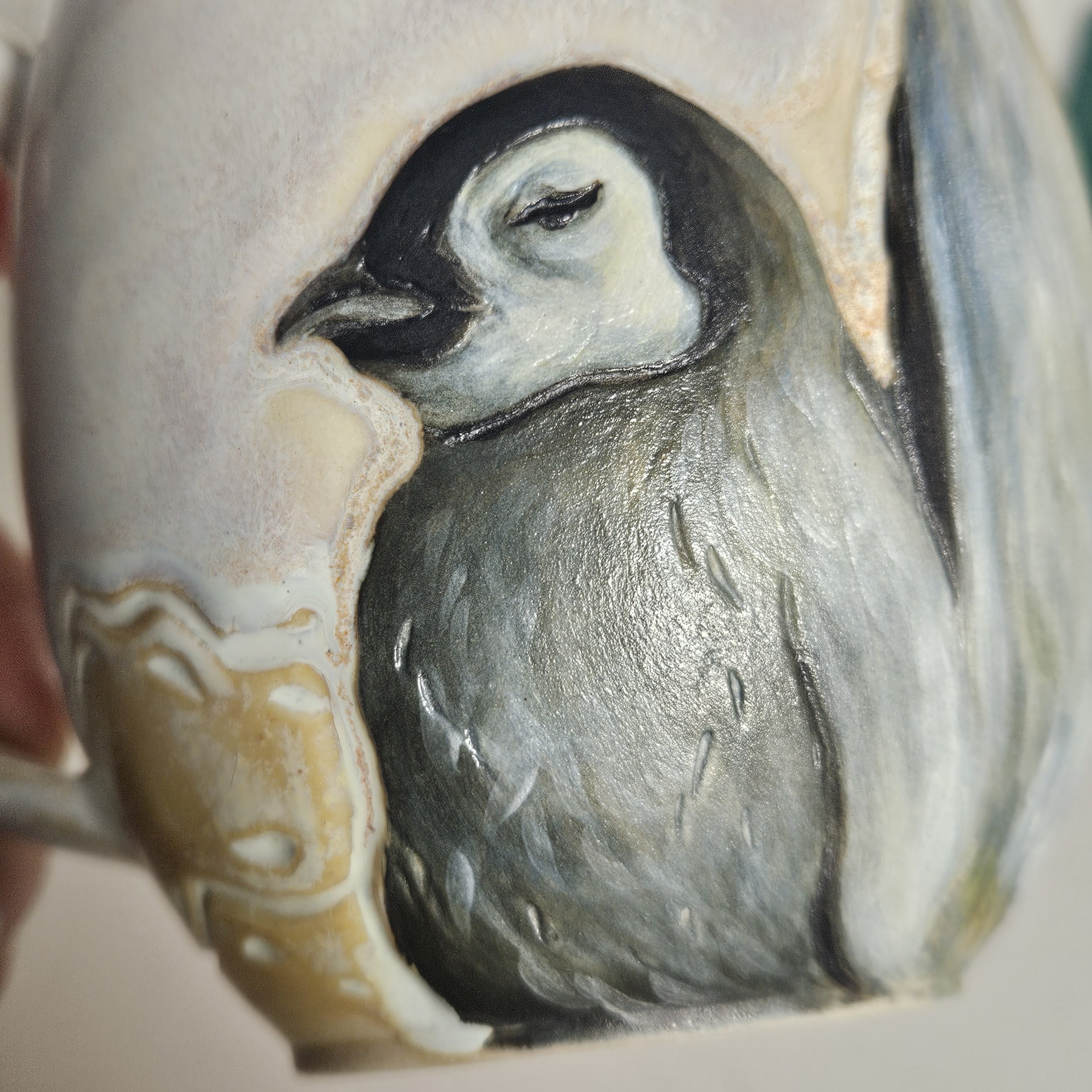
Fun facts about penguins-
The world's second-largest colony of emperor penguins has nearly disappeared after changes in sea/ice conditions made their breeding ground unstable. The species might lose anywhere between 50% and 70% of its global population by the end of this century.
The most common threats to all penguin survival are pollution, loss of habitat by human encroachment, commercial fishing, oil dumping, algae blooms, and global warming.
Penguins swallow pebbles and stones as well as their food. Scientists believe that the stones may help grind up and digest their food. The stones may also add enough extra weight to help penguins dive deeper.
Penguins do not have teeth. Instead, they use their beak to grab and hold wiggling prey. They have spines on the roof of their beak to help them get a good grip. Penguins even have spines on their tongues.
Penguins are carnivores. They eat mostly fish and squid. They also eat crustaceans, such as crabs, shrimp, and krill. A large penguin can collect up to 30 fish in one dive.
Penguins spend several hours a day preening or caring for their feathers. If penguins don’t keep them well maintained, their feathers would not stay waterproof. For extra protection, penguins spread oil on their feathers. The oil comes from a special gland near their tail feathers.
A penguin’s normal body temperature is approximately 100° F (38° C).
Penguins can stay underwater for 10-15 minutes before coming to the surface to breathe.
Penguins can drink salt water because they have a special gland, the supraorbital gland, that filters salt from the bloodstream.

